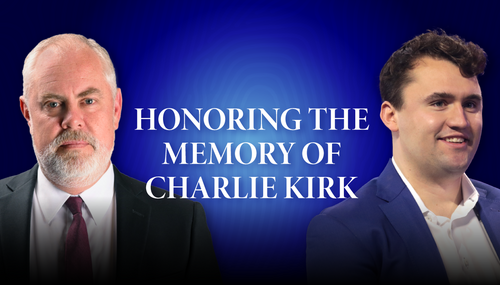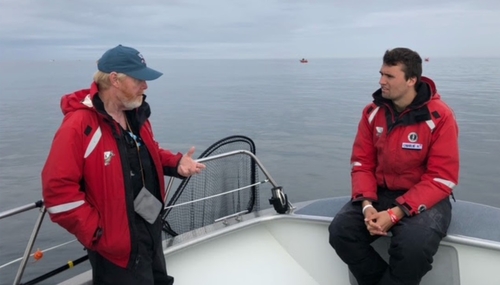 Newsweek's Howard Fineman has some stellar advice for President Obama in his recent column: stop governing for the press. Though Fineman makes the right diagnosis for Obama's ailment -- his "journalistic" style -- his assessment of its consequences is facile and ignores the intricacies of electoral politics.
Newsweek's Howard Fineman has some stellar advice for President Obama in his recent column: stop governing for the press. Though Fineman makes the right diagnosis for Obama's ailment -- his "journalistic" style -- his assessment of its consequences is facile and ignores the intricacies of electoral politics.Fineman insists that it is not really important to cater to the journalistic establishment, as the public's dismal perception of the news media as an institution -- Gallup ranks it in the realm of banks and Congress, according to Fineman -- renders it irrelevant in the political sphere. "Obama needs to stop caring what we all write and say," Fineman insists, as voters are absolutely sickened by Old Media. "If we attack you, it only proves you must have some redeeming qualities," he adds.
The reality of Old Media's role in the process, however, is more complex. It boils down to the candidate's style. If the candidate is a George W. Bush -- with strong political credentials and less reliance on rhetoric -- the media exert a lesser influence. Voters can decide for themselves whether the candidate is qualified. But for a Barack Obama, who relied on rhetoric and idealism due to his lack of political credentials, Old Media has much more sway over the views of the electorate.
Fineman wrote in his Friday column:
Obama needs to stop caring what we all write and say, a process he can start by abandoning the comfortable but incapacitating illusion that reporters are his friends. He can't and shouldn't rely on us to translate for him. We'll get it wrong. And we're the foulest of fair-weather friends. We read the polls, too, and when they plummet, we run. Yet until now, Obama has justifiably regarded the MSM as part of his base, as one of his constituencies. In fact, he thinks of himself as one of us: a member of the chattering class; a bestselling author; op-ed page habitué; student of the craft of writing, reporting, and analyzing. I asked the White House for the president's daily reading material. Here is the list I got back: The New York Times, The Washington Post, The Wall Street Journal, The Chicago Tribune and Sun-Times, NEWSWEEK (a man of taste, this president), Time, The Atlantic, The New Yorker, "blogs," Foreign Affairs, Sports Illustrated, and ESPN.com. "Bottom line is that he reads a ton," I was told. Sure, we need the readers, but maybe that's a few pounds too many.That final sentence is insightful, but Fineman does not elaborate. He should have gone on to note that the press was able to exert tremendous pressures on voters leading up to the 2008 election. But in 2012, Obama will have to show voters what he has done. He will not be re-elected for his rhetoric.
The president's problem is not that he is "professorial." It's worse: He's journalistic. His conceptual and even operational home base doesn't seem to be the South Side of Chicago; it's the op-ed page of the Times, where he's spent lots of time wooing the likes of conservative columnists David Brooks and Ross Douthat. But grass-roots conservatives do not trust those guys (how could they? They write for the Times). And most voters don't read those pages in any case. Certainly most voters don't care as much about the "why" as they do the clear, plain-spoken "what" and "how." They want know, say, what the federal government is going to do about the health-care mess, and how we're supposed to cover 30 million more people and save money at the same time.
Fineman is correct that Obama's continued reliance on Old Media would be a terrible mistake (one wonders, however, if Fineman believes that President Bush benefitted from attacks by the news media). But to infer from his argument that Old Media played no role in getting Obama elected would be not only to ignore reality -- it is clear that reporters gave Obama a pass on a number of major issues (sketchy past associations, his lofty agenda's complete divorce from political reality) -- but also to ignore Old Media's role in the electoral process.
During the George W. Bush presidency, the rhetorical question was often posed: "if the media is overwhelmingly liberal and disproportionately influential on the political process, why did we not have a President Gore or a President Kerry?"
On its face, the question is reasonable. Either the media does not exert liberal pressures on voters, or it attempts to, but is too impotent to really make a difference in the political process. But the question -- and the argument it intends to support -- is too general and simplistic to really capture the role the news media plays in electoral politics. Fineman's argument makes a similar error.
Political words are predominately channeled through the news media. Hence voters' determinations about a candidate's rhetorical skills and intangible qualifications for office -- demeanor, philosophy, world view, etc. -- are all considered through Old Media's political lens (alternative and new media are making inroads, but have yet to match Old Media's tremendous influence on perceptions of political rhetoric).
So while voters' determinations about a candidate do not necessarily depend on Old Media's opinion of that candidate, their feelings and beliefs about the aforementioned intangibles are heavily influenced by the news media's biases. As a result, Old Media's influence on a candidate's electoral prospects is inversely proportional to that candidate's hard accomplishments and real-world experience. When a candidate can point to tangible things he or she has done, whether in the public or private sphere, Old Media's ability to warp public perception of that candidate to fit its political preferences is greatly diminished.
When a candidate has little or no real world experience to tout, however, Old Media has the ability to drastically shape the public's view of that candidate. Voters have few options for determining on their own the candidate's qualifications. They are forced to base their judgments on the candidate's rhetoric, and Old Media exerts tremendous influence over how we consume that information.
Hence, while Bush was not particularly adept and handling or talking to the news media, and Old Media was doing its best to counter Bush's messages, his campaigns were not focused on rhetoric. He had ample experience to point to, first as a successful Texas Governor, and then to four years as president.
Had Bush's 2004 campaign focused on eloquent, idealistic rhetoric, he probably would not have been re-elected. Instead, it focused on the fact that there had not been a terrorist attack since September 11. The country was still in danger of another attack, the campaign insisted, and Bush had a proven record of protecting the nation. Voters agreed.
Obama, on the other hand, did not have substantial political experience to back him up. A community organizer-turned-below-the-radar-senator, he had no significant legislative accomplishments. He relied on his rhetoric, and forced voters to do the same. Old Media's influence in his election was tremendous because voters did not have a way of judging the candidate without being exposed to the onslaught of pro-Obama messaging.
When Fineman urges Obama to quit governing for Old Media and start governing for voters, he is recognizing the fact that the press will not be nearly as valuable a constituency in 2012 as it was in 2008. That is not to say that it will not still be in the tank for Obama. But Old Media will not hold the tremendous sway over his re-election prospects as it did in 2008. Voters will have concrete accomplishments -- or the lack thereof -- by which to judge Obama. They will not need to rely on his rhetoric. Old Media's power will dissipate as a result.




